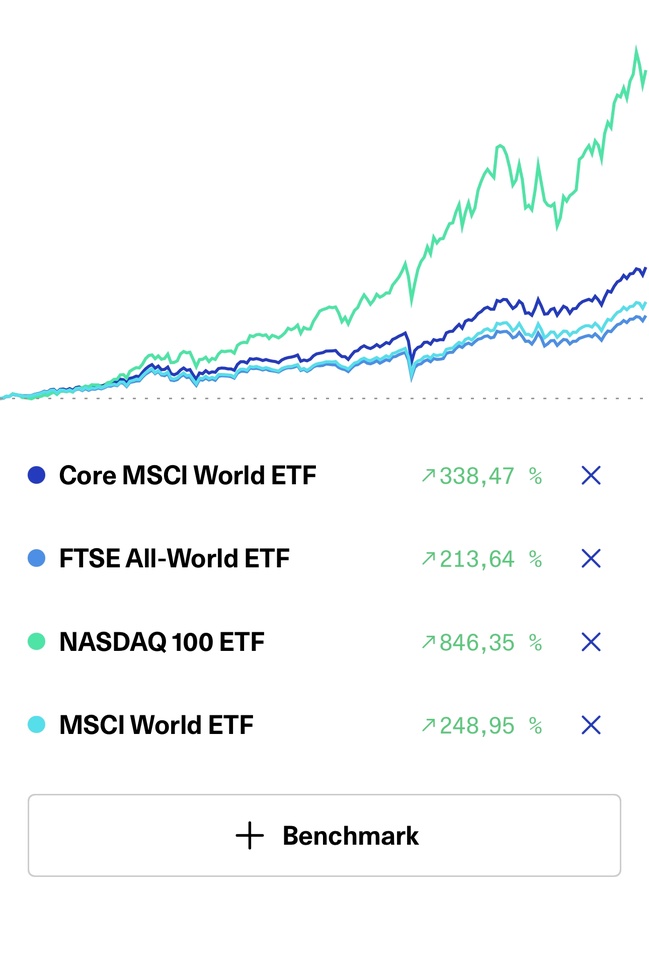Another stupid question, but perhaps a valid one for a beginner.
Many people swear by one of the ETFs listed below. My largest position so far is the $IWDA (-0,93 %) because it has felt pretty good to me so far.
Now the question: Why not put everything into the $CSNDX (-1,12 %) ?
Obviously there are clear differences in the returns of the various ETFs. Why do some people swear by the "worse" ones in comparison?
And how do I find out which one is best for me?
I just want to build up assets in the long term and thus improve my pension, for example.
Possibly 2-3 more positions for buying a house or just a nest egg.
Thank you in advance! ✌🏼
PS: This is now my third post here and I think the feedback and your help here is just great!


















